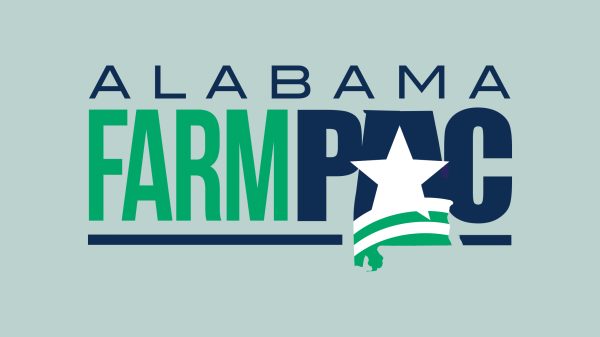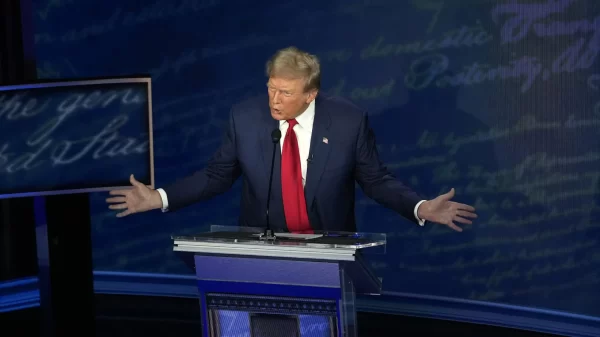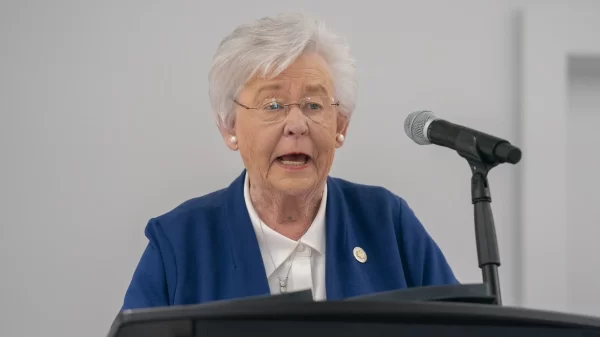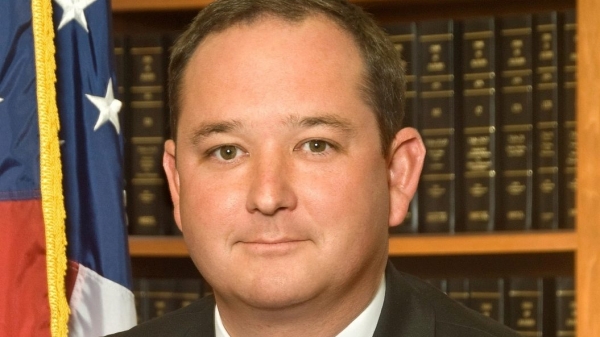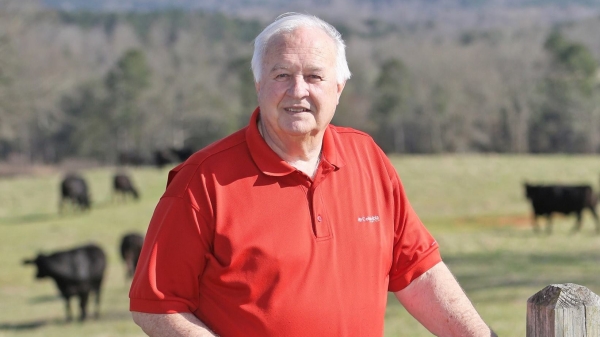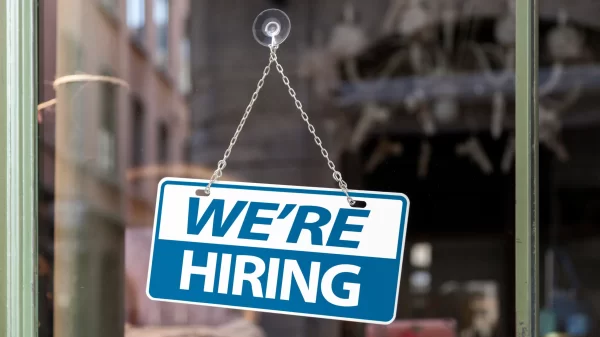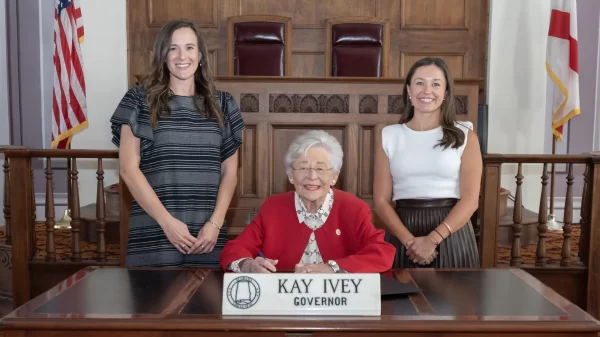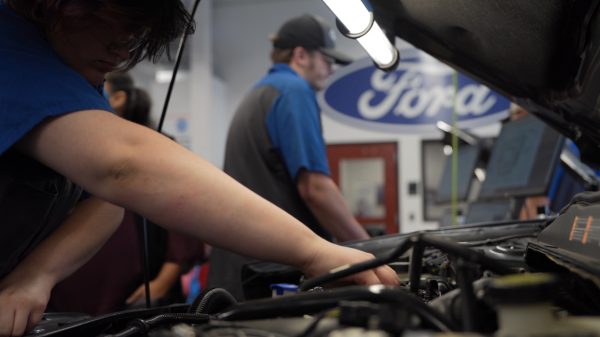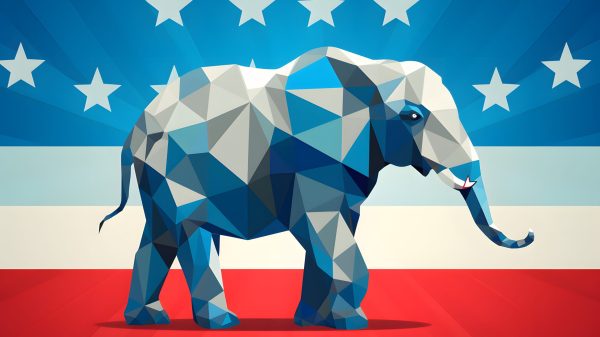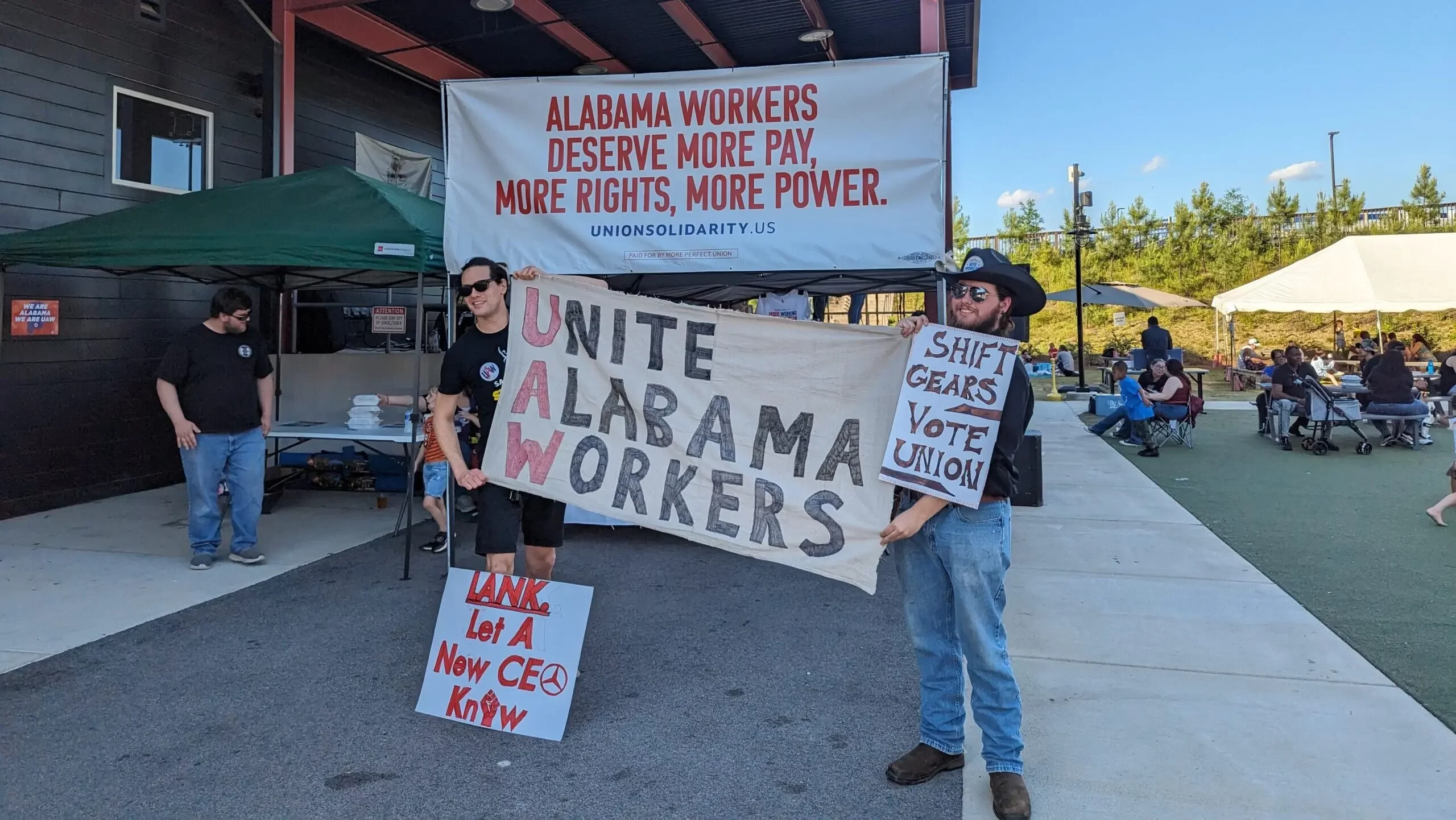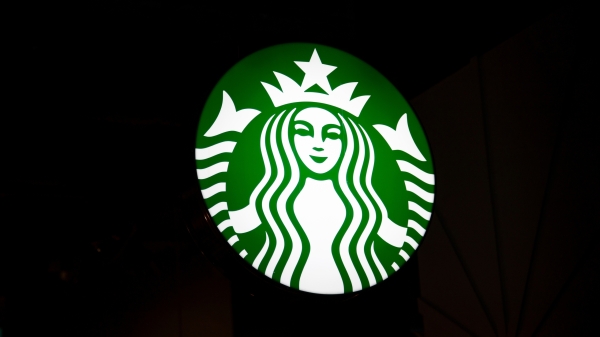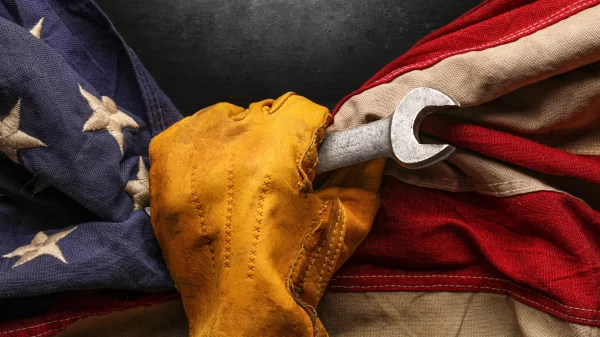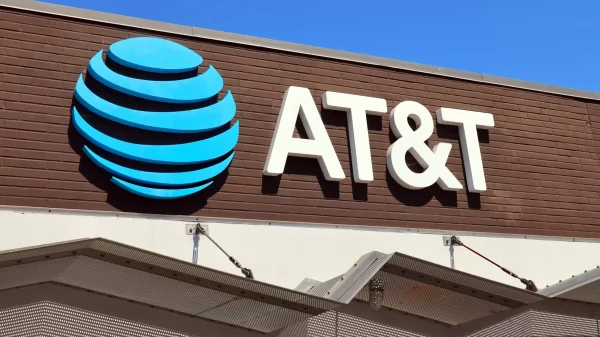|
Getting your Trinity Audio player ready...
|
Almost ten years after the last major unionization campaign, workers at the Mercedes-Benz plant in Vance will begin voting today on whether or not to join the United Auto Workers. Workers will be able to cast votes until 9:45am on Friday and results will likely be announced early Friday afternoon.
The current unionization drive began in January after the success of the UAW’s “Stand Up Strike” drew nonunion autoworkers’ attention.
Thanks to the Stand Up Strike, in October 2023 employees of the Big Three automakers (Ford, General Motors, and Stellantis) won raises ranging between 25 and 160 percent.
Organizing campaigns at the Hyundai and Mercedes plants in Alabama, a Volkswagen plant in Tennessee, and several other nonunion plants started up soon thereafter. And in February, the UAW announced a two-year, $40 million commitment to organizing the South, with a specific focus on organizing new battery and electric vehicle plants.
The UAW’s first major victory of the new organizing push was at the Volkswagen plant in Chattanooga, Tennessee: 73 percent of eligible workers voted to join the UAW.
Celebrating the landslide, the UAW announced in a press release that the Volkswagen workers were the “first Southern autoworkers outside of the Big Three to win their union.”
If the UAW wins this week’s election, they will more than double the number of Southern autoworkers who have joined the union in the months since the Stand Up Strike.
That’s a big if though. Back in 2014, during the last big push to unionize the Mercedes plant, the UAW never filed for an election and didn’t even manage to get a majority of workers to sign union authorization cards.
But according to those involved, the 2024 Mercedes campaign has torn up the traditional playbook for unionizing a non-union plant.
In an article published in Labor Notes in January, Mercedes employee Jeremy Kimbrell wrote that this campaign is both more worker-led and more streamlined than previous attempts.
Kimbrell explained that organizers have focused more on recruiting “talkers” with connections to their fellow workers who were willing and able to promote the union. The change of tactics seems like it may have borne fruit.
Austin Brooks, a Mercedes employee who has spoken at several pro-UAW events, said that “a bunch of my coworkers kept telling me, ‘Austin, why won’t you vote for the union?’”
Eventually one of Brooks’ team leaders explained why he personally supported the union and encouraged Brooks to look into it. After Brooks researched how unionizing had benefited steel mill workers and lumber workers, he signed an authorization card.
Kirk Garner, vice president of UAW Local 112, told APR that roughly 70 percent of Mercedes employees have signed authorization cards in the last few months.
Garner also said he is “real optimistic” about this week’s election. “Of course, you’re going to lose a few when you have a company doing an anti-union campaign,” he stated.
Since the drive began, the UAW have filed six unfair labor practice charges against Mercedes with the National Labor Relations Board.
Kayla Blado, the NLRB press secretary, stated that the charges allege that Mercedes “disciplined employees for discussing unionization at work, prohibited distribution of union materials and paraphernalia, surveilled employees, discharged union supporters, forced employees to attend captive audience meetings, and made statements suggesting that union activity is futile.”
However, a Mercedes spokesperson has said that “MBUSI wants to make sure its team members make an informed decision.” They also pointed to the company’s “proven record of competitively compensating Team Members and providing many additional benefits.”
Despite the alleged union busting, Garner said that the UAW “looks forward to having a great relationship with the company.”


